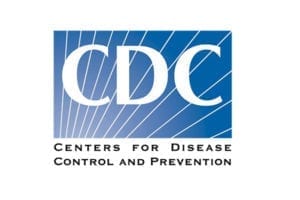
This article explains what preventive measures the people with asthma should take so they can avoid contagious of coronavirus due to the fact that they are a population at risk.
“Page last reviewed: April 2, 2020″
Risk of Severe Illness from COVID-19
People with moderate to severe asthma may be at higher risk of getting very sick from COVID-19. COVID-19 can affect your respiratory tract (nose, throat, lungs), cause an asthma attack, and possibly lead to pneumonia and acute respiratory disease.
Treatment
There is currently no specific treatment for or vaccine to prevent COVID-19. The best way to prevent illness is to avoid being exposed to this virus.
Prepare for COVID-19
- Stock up on supplies.
- Take everyday precautions to keep space between yourself and others.
- When you go out in public, keep away from others who are sick.
- Clean your hands often by washing with soap and water or using an alcohol-based hand sanitizer.
- Avoid crowds and people who are sick.
- Avoid cruise travel and non-essential air travel.
- During a COVID-19 outbreak in your community, stay home as much as possible to further reduce your risk of being exposed.
- If someone in your home is sick, have them stay away from the rest of the household to reduce the risk of spreading the virus in your home.
- Avoid sharing personal household items such as cups and towels.
Follow your Asthma Action Plan
- Keep your asthma under control by following your asthma action plan.
- Continue your current medications, including any inhalers with steroids in them (“steroids” is another word for corticosteroids).
- Don’t stop any medications or change your asthma treatment plan without talking to your healthcare provider.
- Discuss any concerns about your treatment with your healthcare provider.
- Talk to your healthcare provider, insurer, and pharmacist about creating an emergency supply of prescription medications, such as asthma inhalers. Make sure that you have 30 days of non-prescription medications and supplies on hand too in case you need to stay home for a long time.
- Know how to use your inhaler.
- Avoid your asthma triggers.
- As more cases of COVID-19 are discovered and our communities take action to combat the spread of disease, it is natural for some people to feel concerned or stressed. Strong emotions can trigger an asthma attack. Take steps to help yourself cope with stress and anxiety.
Clean and disinfect things you or your family touch frequently
- If possible, have someone who doesn’t have asthma do the cleaning and disinfecting. When they use cleaning and disinfecting products, have them:
- Make sure that people with asthma are not in the room.
- Minimize use of disinfectants that can cause an asthma attack.
- Open windows or doors and use a fan that blows air outdoors.
- Clean and disinfect surfaces like phones, remotes, tables, doorknobs, light switches, countertops, handles, desks, keyboards, toilets, faucets, and sinks daily.
- Always follow the instructions on the product label.
- Spray or pour spray products onto a cleaning cloth or paper towel instead of spraying the product directly onto the cleaning surface (if the product label allows).
If you have symptoms
Contact your health care provider to ask about your symptoms.
Subscribe
0 Comments
